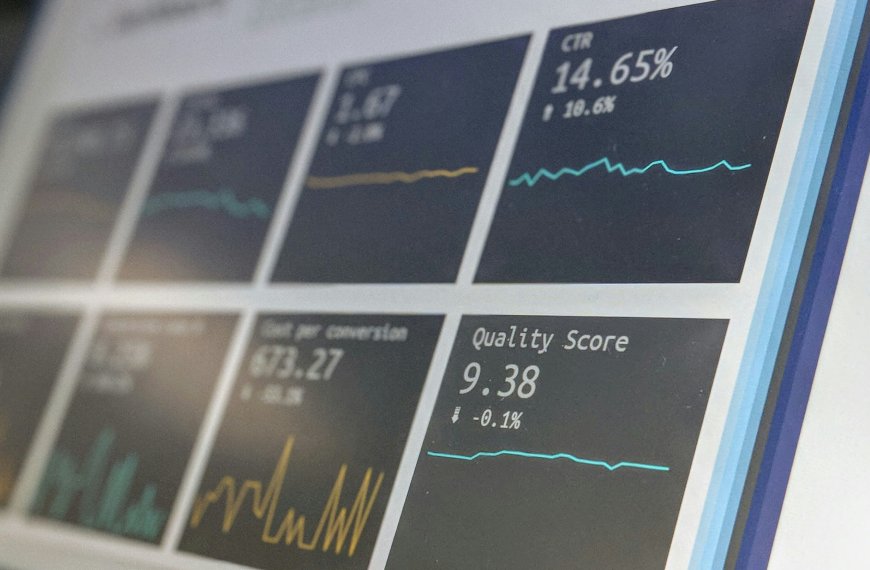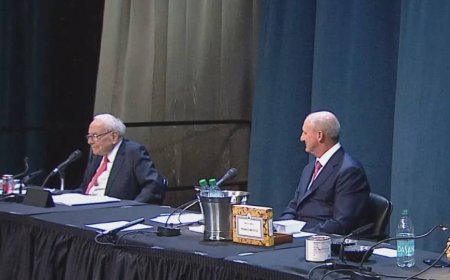Aareal Bank France
Aareal Bank Group through the Ages New times demand new answers. During their history, the Aareal Bank Group and its prede-cessors have repeatedly adjusted to new regulatory conditions and have used the changes to their advantage - this flexibility continues to be our trademark. 1922 - 1945: Foundation and World War II Today's Aareal Bank AG can be traced back to two institutions: the Preuß

Aareal Bank Group through the Ages New times demand new answers. During their history, the Aareal Bank Group and its prede-cessors have repeatedly adjusted to new regulatory conditions and have used the changes to their advantage - this flexibility continues to be our trademark. 1922 - 1945: Foundation and World War II Today's Aareal Bank AG can be traced back to two institutions: the Preußische Landes-pfandbriefanstalt, which was founded by the Prussian government in 1922, and the Deutsche Wohnstättenbank AG, which was launched by housing industry entrepreneurs in 1923; both established their registered offices in Berlin. Both banks were founded in troubled times. The economic crisis and inflation had a major impact on the years after World War I and there was a catastrophic housing shortage at that time. Moreover, the war had eroded private wealth and thus the most important source of construction finance. In this situation, both banks intended to provide a new basis for the financing of housing construction. Within a few years, the Preußische Landespfandbriefanstalt had established itself as one of the larger banks offering covered securities under the German Mortgage Bank Act (Pfand-brief bank). Nevertheless, it too suffered under the Great Depression in 1929. During the National Socialist era as of 1933, the Preußische Landespfandbriefanstalt - like all Pfand-brief banks - became considerably less important. The government of the German Reich granted very few approvals for the issuance of covered securities in order to keep the market open for utilisation by the government. The bank's sphere of activities was thus severely lim-ited. World War II also left traces on the Preußische Landespfandbriefanstalt and on the Deutsche Wohnstättenbank AG, which was renamed the Deutsche Bau- und Bodenbank in 1926. Business activities almost ground to a halt; many business premises in Berlin were severely damaged and businesses had to be temporarily relocated. 1945 - 1968: Reconstruction in Post-War Germany After the war, the housing industry faced considerable challenges. The Preußische Landes-pfandbriefanstalt and the Deutsche Bau- und Bodenbank were placed under the control of the American military authorities, together with all of their assets, in 1945; new business was not permitted. Only in 1949 were they able to resume the full range of their activities once again. In the meantime, their principal places of business had become the West German cities of Wiesbaden and Mainz. In 1954, the Preußische Landespfandbriefanstalt became a federal corporation under public law known as the Deutsche Pfandbriefanstalt. In the 1950s and 1960s, its focus was on long-term housing construction finance. By the end of this period, this institution had developed into one of the largest issuers of mortgage bonds or covered securities ("Pfandbriefe") in Germany. For the Deutsche Bau- und Bodenbank, the years after the resumption of their regular busi-ness operations were characterised by technical innovations in particular. It was the first German bank to establish a computer centre for the process of its bulk payment vouchers and in the 1960s, it expanded this pioneering role. 1968 - 1989: Setting the Course Whereas the first two decades after the end of the Second World War were characterised by the reconstruction of Germany, the spirit of optimism in the country prevalent in the late 1960s was also reflected in the development of the Deutsche Pfandbriefanstalt and the Deutsche Bau- und Bodenbank. For both institutions, the following decade meant a phase of expansion. The Deutsche Pfandbriefanstalt was able to considerably extend its business activities in housing construction finance, and as of the mid-1970s, it added the very profit-able business of public finance to its operations. For the Deutsche Bau- und Bodenbank, this decade also stood out because of its steady growth and technical innovations in the man-agement of housing. In 1979, the Deutsche Pfandbriefanstalt acquired a majority holding in the Deutsche Bau- und Bodenbank. This bank's specialised knowledge created an important basis for the fur-ther growth of the Deutsche Pfandbriefanstalt in the following decades. 1989 - 2001: Privatisation and Internationalisation In 1989, the public-law corporation was converted into a public limited company under Ger-man law (Aktiengesellschaft) and renamed the Deutsche Pfandbrief- und Hypothekenbank AG. The bank went public in 1991, and thus the corner stone was laid for the build-up of a financial and services provider capable of operating on a European-wide basis. During the course of the German reunification, this institution, which was now purely market-based, participated in the enormous demand for finance in the new German states. Housing construction and renovation, urban development and infrastructure measures had to be jointly managed. The Deutsche Pfandbrief- und Hypothekenbank provided the requisite funds to public authorities and private households. The Deutsche Pfandbrief and Hypothekenbank reacted to the globalisation of the markets with an increasingly international orientation of its business activities. Top priority was given to activities in France, Great Britain and the Netherlands, in particular. In 1991, the Bank opened its first foreign office in Amsterdam; numerous others have followed since then. Since 1998, it has also done business in the USA and in Canada. The Bank's IT Services Department was spun off in 1997 as an independent subsidiary called BauBoden Systemhaus GmbH. Two years later, this led to the creation of a group of companies with a holding structure which now bears the name of DePfa IT Services AG and is beginning to expand its international business activities. A major restructuring of the group of companies was undertaken in 1999. The Deutsche Pfandbrief- und Hypothekenbank, now known as the DePfa Deutsche Pfandbriefbank AG, transferred all of its property-related operations to the Deutsche Bau- und Bodenbank, which had been integrated into the group since 1979, and which immediately commenced opera-tions under the name of DePfa Bank AG BauBoden. The clear differentiation into the busi-ness segments of property finance and public finance allows a concentration on the respec-tive core competencies and does justice to the increasing demand for specialised financing offers. From 2001 to the Present: The Aareal Bank Group As of the latter half of the 1990s, it became more and more obvious that the framework es-tablished by the German Mortgage Bank Act in effect at that time was too restrictive for the individual development of property and public finance activities. Cross-selling-effects and synergies were only able to be achieved to a limited degree. This ultimately led to the divi-sion of the DePfa Group into two independent and publicly-listed specialised banks, which were then selectively able to expand their core competencies and to internationalise their respective business segments. In October of 2001, shareholders agreed to the strategic re-orientation of the DePfa Group. This multi-phase separation process was concluded in June of 2002 and produced the Wiesbaden-based Aareal Bank AG, as a specialist property bank and provider of finance, and the Dublin-based DEPFA BANK plc, as a public finance bank. In the same year, the Aareal Bank AG went public and was accepted into the German MDAX (mid-cap) Index. The IT subsidiary now does business under a new name as well, namely Aareon AG. This is a wholly-owned subsidiary of the Aareal Bank Group. The difficult market situation in the following years did not leave the Aareal Bank unscathed. Nevertheless, the Bank took the offensive in the market with its new locations, new products and investments. In 2005, the strategic realignment of the bank was launched under Dr. Wolf Schumacher, the Chairman of the Management Board, on the basis of the "six-point pro-gramme". This ambitious programme comprises all of the external and internal aspects - from the optimisation of the credit portfolio to structural changes throughout the Group to the corporate culture - required in order to safeguard the Group's position as a leading interna-tional property specialist in the long run. As of 2006, the Aareal Bank has concentrated on its two business segments of Structured Property Financing and Consulting / Services. This programme was able to be successfully concluded in March of 2007, 18 months earlier than planned. Immediately thereafter, the Aareal Bank launched the FUTURE 2010 growth programme with which it defined the foundations for its strategy for the coming years. As one of the leading international specialist property banks, the Aareal Bank Group stands for finance, consulting and services in commercial property and institutional housing sectors. It supports German and international clients as their financing partner and related services provider. The Struc-tured Property Financing segment is the core of the Aareal Bank Group and comprises all the property finance and treasury activities. Aareal Bank has more than 15 years of experi-ence in domestic and international commercial property finance and services clients in more than 25 countries. It is active in Europe, North America and Asia within the scope of its "three-continent strategy". The Consulting / Services segment offers the institutional housing sector services and pro-ducts for managing residential property portfolios and processing payment flows. Within this segment, the Institutional Housing Business Unit cooperates closely with the Aareon AG subsidiary. Through Aareon, the Aareal Bank Group operates its IT systems and consulting business for the institutional housing sector. Aareon offers its customers advisory and train-ing services as well as software products together with support and IT services. On the basis of its expertise and experience, the Aareal Bank Group will continue to provide the best possible services to its clients on three continents; create lasting value for its share-holders; and be an attractive employer for its entrepreneurially-minded employees.
Address: 5 rue Scribe, 75009 Paris, Dept 75, France
Phone: +33 1 44 51 66 30
FAX: +33 1 42 66 97 94






































































































































